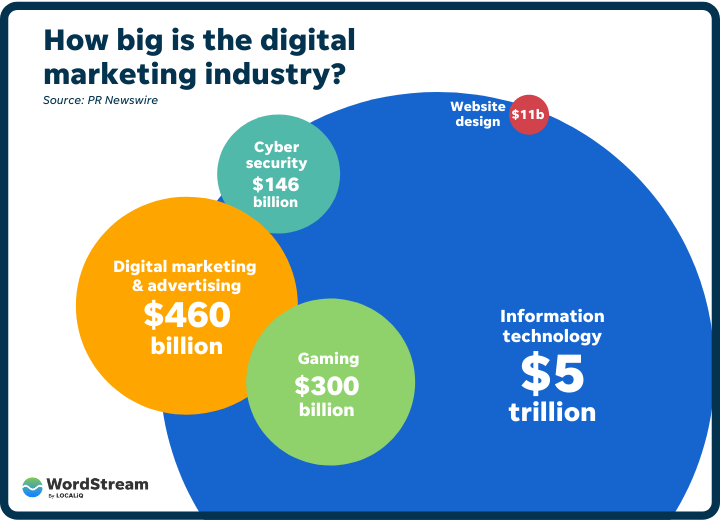Marketing is a crucial aspect of any business, but it’s especially important for small businesses looking to stand out in a crowded market. A well-executed marketing strategy can help increase brand awareness, attract new customers, and ultimately drive sales. In this guide, we’ll explore the benefits of marketing for small businesses and provide tips for creating a successful marketing strategy.
💡 Helpful Statistics About Marketing:
● 82% of companies report using content marketing.
● On average, email marketing has a 4400% ROI. (OptinMonster)
● 76% of content marketers use organic traffic as a key metric for measuring content success. Only 22% use backlinks.
.
● 78% of salespeople using social media perform better than their peers. (Screwpile Communications)
● 98% of sales reps with 5000+ LinkedIn connections meet or surpass sales quotas. (The Sales Benchmark Index)
● There are 1.5 billion social media users across the globe. (McKinsey and Company)
● The purpose of content marketing is to create and share relevant information to attract and engage a target audience that’s interested in
your product or service.
● Blogs with educational content get 52% more organic traffic than blogs with company-focused content.

Table of Contents
Understand your target audience.
One of the most important aspects of creating a successful marketing strategy is understanding your target audience. Who are they? What are their needs and pain points? What motivates them to make a purchase? By answering these questions, you can tailor your marketing efforts to better resonate with your audience and increase the likelihood of converting them into customers. Conduct market research, analyze customer data, and create buyer personas to gain a deeper understanding of your target audience.
Develop a strong brand identity.
A strong brand identity is crucial for small businesses to stand out in a crowded market. Your brand identity should be consistent across all marketing channels, including your website, social media, and advertising. This includes your logo, color scheme, messaging, and tone of voice. A strong brand identity helps to build trust and credibility with your audience, making them more likely to choose your business over competitors. Consider hiring a professional designer or branding agency to help you create a cohesive and memorable brand identity.
Utilize social media and online advertising.
Social media and online advertising are powerful tools for small businesses to reach their target audience. With over 3 billion people using social media worldwide, platforms like Facebook, Instagram, and Twitter offer a cost-effective way to promote your business and engage with customers. Online advertising, such as Google Ads and Facebook Ads, allows you to target specific demographics and interests, ensuring the right people see your ads. Be sure to create compelling and visually appealing content that will capture your audience’s attention and drive traffic to your website or physical location.
Network and collaborate with other businesses.
Networking and collaborating with other businesses can greatly expand your reach and gain new customers. Attend local business events and join industry-specific groups to meet other entrepreneurs and share ideas. You can also collaborate with other businesses on joint marketing campaigns or events, which can help you reach a wider audience and build relationships with potential customers. Don’t be afraid to reach out and make connections – you never know where they might lead.
Measure and analyze your marketing efforts.
It’s important to track and analyze your marketing efforts to see what’s working and what’s not. This will help you make informed decisions about where to allocate your resources and adjust your strategy as needed. Use tools like Google Analytics to track website traffic and social media analytics to monitor engagement and reach. You can also conduct customer surveys or focus groups to gather feedback on your marketing campaigns. You can continually improve and refine your marketing strategy by measuring and analyzing your efforts for maximum impact.
